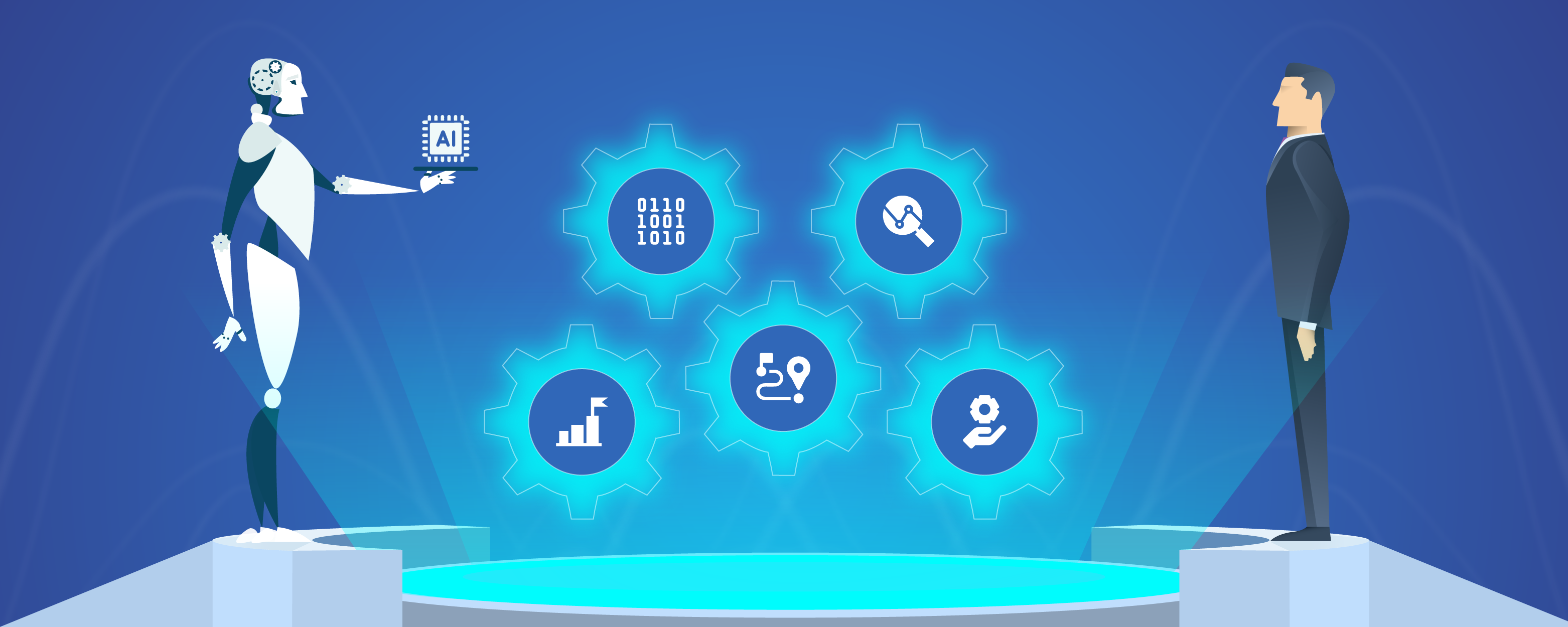Artificial Intelligence (AI) has evolved from being a niche technology to becoming a key driver of transformation across multiple sectors. Today, industries using AI are reaping benefits in efficiency, accuracy, and innovation, while reshaping how businesses operate and compete globally.
From healthcare to finance and manufacturing, AI applications are redefining traditional workflows, enhancing productivity, and opening doors to entirely new business models. This shift is not only technological but also strategic, as companies adopting AI gain a competitive advantage in data-driven decision-making and customer experience.
Why Industries Are Rapidly Adopting AI
There are several reasons why industries using AI are expanding at an unprecedented pace.
- Data Explosion: The rise of big data has created an environment where AI thrives. Industries need powerful tools to analyze and utilize data for better decision-making.
- Cost Efficiency: AI automates repetitive tasks, reducing operational costs and improving resource allocation.
- Competitive Advantage: Early adopters of AI gain a significant edge over competitors by improving product quality, customer service, and market insights.
- Innovation Potential: AI enables the creation of new products and services, from personalized healthcare treatments to self-driving vehicles.
These drivers have positioned AI not just as a technological upgrade but as a fundamental enabler of digital transformation across industries.
Key Industries Using AI To Transform Operations
Healthcare
The healthcare sector is among the most dynamic industries using AI. AI-powered tools assist in early diagnosis, drug discovery, and patient care management. Machine learning models analyze medical imaging to detect diseases such as cancer at earlier stages, while predictive analytics help hospitals optimize resource allocation and reduce patient wait times.
Telemedicine and AI-powered chatbots have also revolutionized patient engagement, allowing healthcare providers to extend services beyond traditional settings. Moreover, pharmaceutical companies leverage AI for faster drug development, reducing time-to-market for new treatments.
Finance
The finance industry has embraced AI to improve risk management, detect fraud, and enhance customer experience. Algorithms analyze market trends, helping investors make informed decisions, while AI-powered chatbots provide 24/7 support for banking customers.
One of the most critical applications of AI in finance is fraud detection. Advanced machine learning systems can analyze millions of transactions in real time, flagging anomalies and preventing financial crimes. Additionally, robo-advisors use AI to offer personalized investment strategies, making wealth management more accessible.
Manufacturing
Manufacturing is another sector where industries using AI see tremendous value. AI-driven predictive maintenance helps identify potential equipment failures before they occur, reducing downtime and saving costs. Robotics and automation powered by AI streamline production processes, improving precision and output.
Supply chain optimization is another significant advantage. AI algorithms analyze market demand, logistics, and inventory data to ensure efficient production and timely deliveries, leading to cost reductions and improved customer satisfaction.
Retail And E-Commerce
The retail industry uses AI for personalized shopping experiences, inventory management, and demand forecasting. E-commerce platforms employ AI-driven recommendation engines that analyze customer behavior to suggest products, increasing conversion rates and sales.
AI chatbots enhance customer support by addressing inquiries quickly, while sentiment analysis tools help brands understand consumer feedback and improve service. Additionally, AI-based pricing tools dynamically adjust product prices to maximize revenue while remaining competitive.
Energy And Utilities
Energy companies are using AI to predict energy demand, manage grid operations, and monitor equipment. Renewable energy providers benefit from AI-enabled forecasting tools that optimize power generation from wind and solar sources.
By integrating AI, utility companies can also detect faults in power lines faster, reducing outages and improving customer service. In the oil and gas sector, AI assists in exploration, drilling, and safety management, resulting in more efficient resource utilization.
Benefits Of AI Adoption Across Industries
The adoption of AI provides a wide range of benefits for businesses and consumers alike:
- Enhanced Efficiency: Automating routine tasks reduces human error and speeds up processes.
- Improved Decision-Making: AI-driven analytics offer deep insights, enabling informed strategic planning.
- Cost Reduction: Companies save resources through optimized operations and predictive maintenance.
- Customer-Centric Services: Personalized recommendations and 24/7 support enhance customer experience.
- Innovation Enablement: AI fosters new product development and opens markets that previously did not exist.
These advantages make AI a crucial investment for businesses aiming to thrive in increasingly competitive markets.
Challenges Facing Industries Using AI
Despite the potential, industries using AI face challenges such as:
- High Implementation Costs: AI solutions require significant upfront investment in infrastructure and talent.
- Data Privacy Concerns: Collecting and analyzing vast amounts of data raises ethical and legal concerns.
- Skill Gaps: A shortage of AI-skilled professionals limits the pace of adoption.
- Algorithmic Bias: Poorly designed models can perpetuate biases, leading to unfair or inaccurate outcomes.
Addressing these challenges requires collaboration between governments, educational institutions, and private companies to ensure responsible and inclusive AI adoption.
The Future Of AI Across Industries
Looking ahead, industries using AI are expected to continue innovating and expanding their applications. Key trends include:
- Integration With IoT: AI combined with Internet of Things (IoT) devices will enhance automation in sectors like logistics, agriculture, and healthcare.
- Edge AI: Processing data closer to its source will enable faster decision-making in areas such as autonomous vehicles and industrial automation.
- Explainable AI (XAI): Efforts to make AI decisions more transparent will build trust and facilitate broader adoption.
- Sustainability Focus: AI will play a pivotal role in environmental monitoring and sustainable resource management.
Conclusion
The growing adoption of AI across sectors demonstrates its transformative potential. From healthcare and finance to manufacturing and energy, industries using AI are reshaping their operations, improving efficiency, and unlocking new opportunities.
While challenges remain, the benefits outweigh the obstacles, making AI a critical element of future business strategies. As AI technology continues to evolve, industries that embrace it early will be best positioned to thrive in the digital economy.
Read More






 Thursday, 22-01-26
Thursday, 22-01-26







